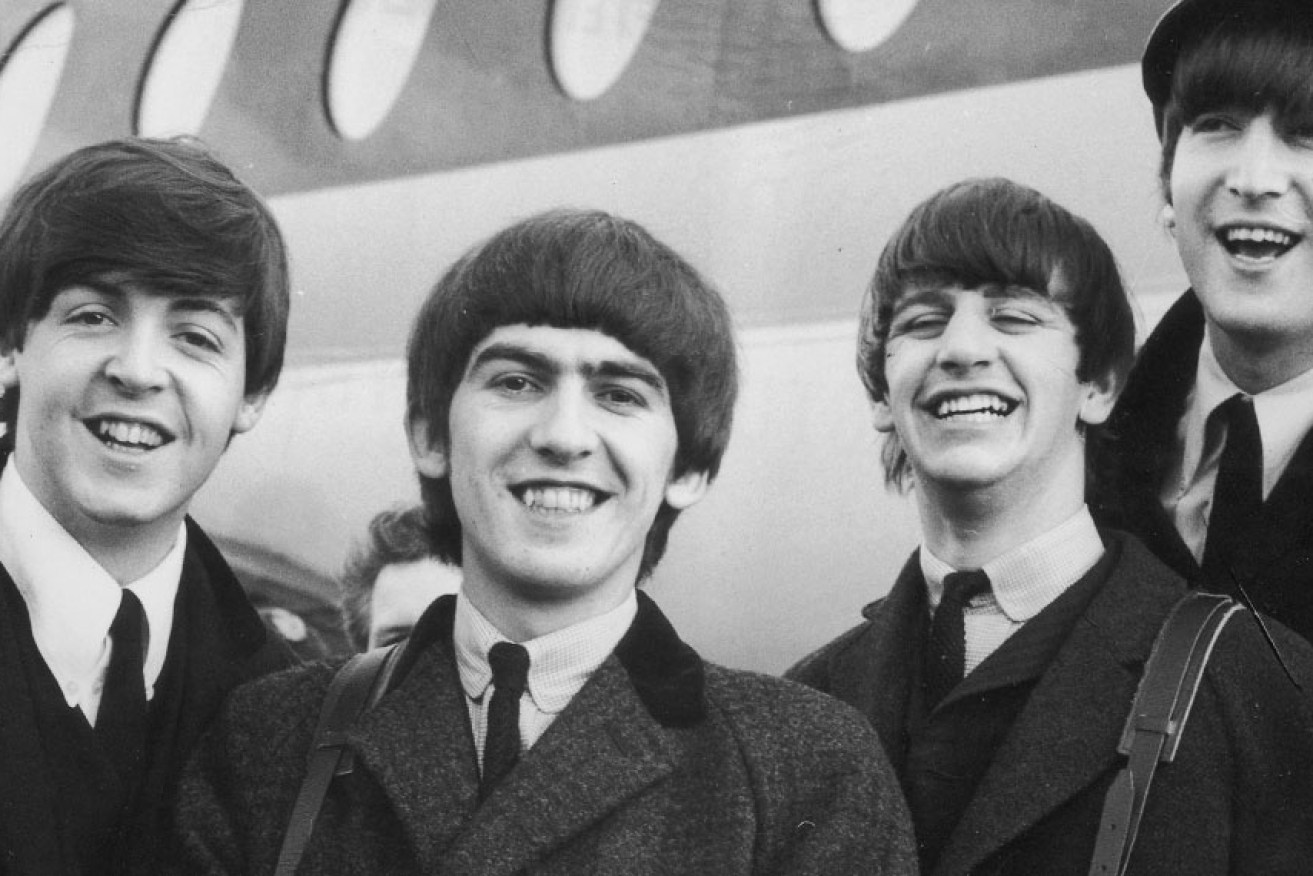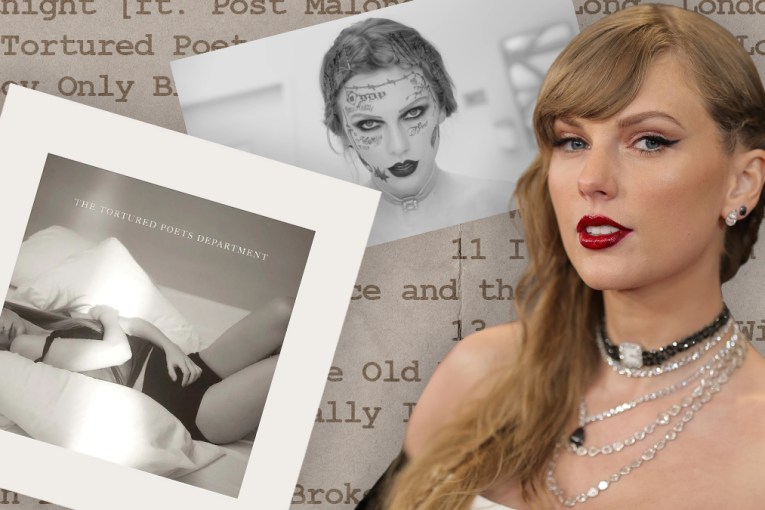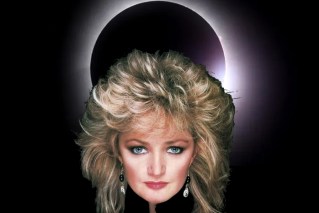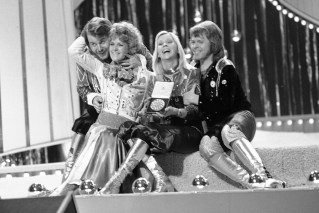Paul McCartney: still struggling for credibility

The band stopped touring in 1966 – the crowds became too intense.
The walrus was Paul, apparently, not John. Goo goo goo-joob. We know what John Lennon was on at the time, but what was he actually on about? My guess is the explanation comes in the second last verse – “don’t you think the joker laughs at you?” – because Lennon was becoming increasingly bewildered with the material McCartney was submitting. Particularly his lyrics.
“O-bla-di, O-bla-da life goes on, brah! La-la-la-la life goes on.”

Paul McCartney has a new wife, new life and a new sound (of sorts). Photo: Getty
As Lennon’s mental and musical horizons expanded with every tab of acid, McCartney wasn’t, to Lennon’s mind, keeping pace. And for someone who loved words and wordplay, McCartney’s refusal to spend much time trying to write something worth singing was beginning to get on Lennon’s goat. Which wasn’t hard to do. To be fair, for the White Album sessions McCartney did bring Back In The USSR, Helter Skelter, Mother Nature’s Son and Blackbird. But he also contributed Martha My Dear (which was about his dog) and Rocky Racoon. And O-Bla-Di, O-Bla-Da. Abbey Road had Maxwell’s Silver Hammer and Let It Be had, to Lennon’s ears, the saccharine title track.
Anyway, this is not about Lennon v McCartney – it can be argued convincingly that Lennon became Lennon-lite straight after Plastic Ono Band, never to recover – it’s about McCartney and the ‘laughing joker’ because Lennon was on the money, if a little ahead of the curve. That is, the rest of us hadn’t cottoned on to the fact McCartney was beginning to waste his talent and, worse, when called to account became glibly, maddeningly indifferent. But we soon would.
“Some people wanna fill the world with silly love songs. And what’s wrong with that I’d like to know? Because here I go again.”
Silly Love Songs. That’s McCartney in three words and he can’t complain because he’s written that epitaph over and over, song after song, album after album, despite ruthless, relentless criticism from his peers and public.
Jon Landau, writing for Rolling Stone, memorably dismissed McCartney’s second solo album, Ram, as “incredibly inconsequential”, “monumentally irrelevant” and “emotionally vacuous”. McCartney’s reaction? He wrote a song called Mary Had A Little Lamb, formed a band (Wings) and released the rush-recorded Wild Life, which included the song I Am Your Singer.
Over to you Rolling Stone: “Flaccid musically and impotent lyrically, trivial and unaffecting.” OK, but what about I Am Your Singer? “Embarrassingly puerile.” The author signs off saying “we’d be foolish to expect anything much more earth shaking for a good long while … (maybe) the latter part of this decade”. History shows he was optimistic.
Forty-two years later McCartney still hasn’t lived those reviews down. Forty-two years! Hell, The Beatles were together only eight years. But maybe we shouldn’t be amazed. Maybe The Beatles are an impossible act to follow. Maybe he’s right to not even try. Er, no. He’s either in or he’s out. That is, he either does a Bowie and disappears or he challenges himself to write something of relevance.
And that brings us to New, his first album of original songs in six years. As the title implies, New is an attempt at a fresh start. He’s got a new wife, new life and, thanks to four producers 50 years his junior, a new sound. Of sorts. The fact is, three of the producers – Mark Ronson (Lil Wayne, Amy Winehouse), Paul Epworth (Adele, Florence + The Machine) and Ethan Johns (Laura Marling, Kaiser Chiefs) have done much better work elsewhere, which suggests McCartney wasn’t prepared to stray too far off his well-trodden track. And that’s why the fourth producer, Giles Martin, is there. He’s George Martin’s son and, like dad, opts for safety first, second and third.

Paul McCartney said he channelled John Lennon when writing his new album. Photo: Getty
The problem, as always, is McCartney, is his songs, is his lack of objectivity, is the lack of having someone say “no” to him. New’s first single, Queenie Eye, is a classic case in point. It begins promisingly:
“There were rules you never told me/never came up with a plan;
All the stories that you sold me/didn’t help me understand.
But I had to get it worked out/had nobody who could help
So then in the end it turned out/that I had to do it by myself.”
If only he was talking about his career. Anyway, here’s the look-away-now lyric:
“Queenie eye, queenie eye, who’s got the ball?
I haven’t got it, it isn’t in my pocket,
O-U-T spells out
That’s out, without a shadow of a doubt.”
McCartney has lived a life twice over, his well of reference is considerable yet, as he sings on New track Alligator, all he wants is a “conversation not too deep”. And we get it with Queenie Eye, and Co. Unfortunately that’s all he’s ever wanted, which is his prerogative, but it won’t be art and it won’t keep the jokers at bay.
New was destined to fail from the start because McCartney’s artistic salvation won’t be found on the radio – it will be found in his gut. Not his gut instinct – hell, no – his being. Bob Dylan had the same problem until he worked out the only way ahead was to, as McCartney might have said, “get back”. He released two albums of covers and then the career-turning meditation on mortality, Time Out Of Mind. Every subsequent album has been an authentic homage to his rockabilly roots – hardly an FM staple – and enthusiastically received.
But an even more pertinent lesson may be found in Bruce Springsteen. After Springsteen recorded The Seeger Sessions, an album of traditional folk songs, he released two of the worst, most commercially wannabe, albums, in his catalogue, Magic and Working On A Dream. They were ignored and so was he. But redemption came with Wrecking Ball, a record that shone an unwelcome light on America’s ills. It was honest and lauded and led to two world tours.
McCartney’s last album, Kisses On The Bottom, was a tribute to the songs he heard growing up. While it reeked of sentimentality – something Dylan and Springsteen’s records never did – it was still hoped it would reboot his songwriting smarts. And it appears maybe McCartney hoped it would, too. He told Rolling Stone he even went as far as channelling Lennon when writing his recent batch of songs: “If I’m at a point where I go ‘I’m not sure about this’ I’ll throw it across the room to John. He’ll say ‘You can’t go there, man’ and I’ll say ‘You’re quite right. How about this?’ ‘Yeah, that’s better.’ ”
Now either he’s telling the truth, which either means Lennon still stands by Dear Yoko, or he’s hallucinating. And anyone who has seen the bizarre video for Queenie Eye will probably opt for the latter. Or there is a third option: he’s not even listening to Lennon. Have a listen to Lennon’s How Do You Sleep.
Queenie Eye
How Do You Sleep
I am the Walrus
Vern Henley is a freelance writer.








